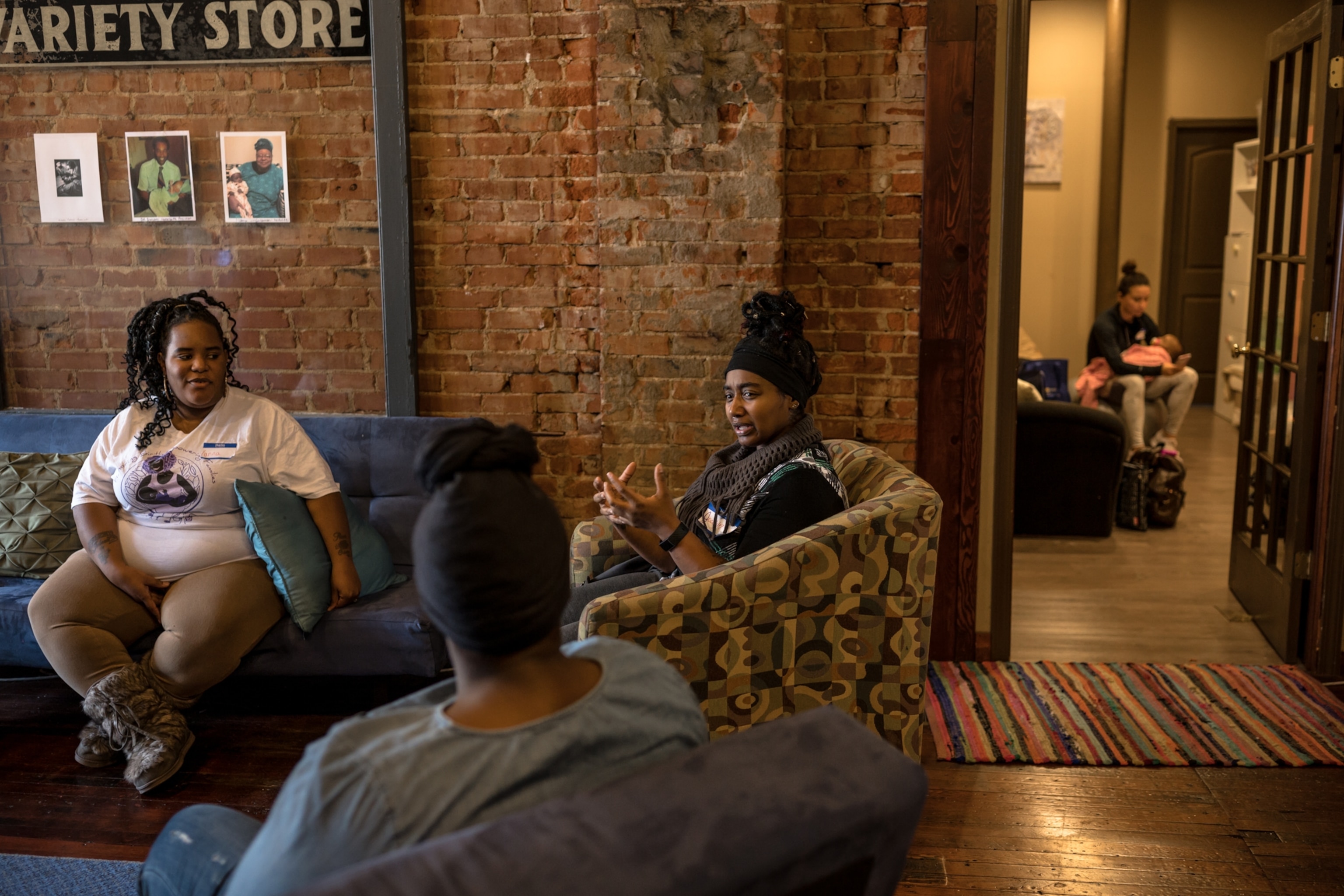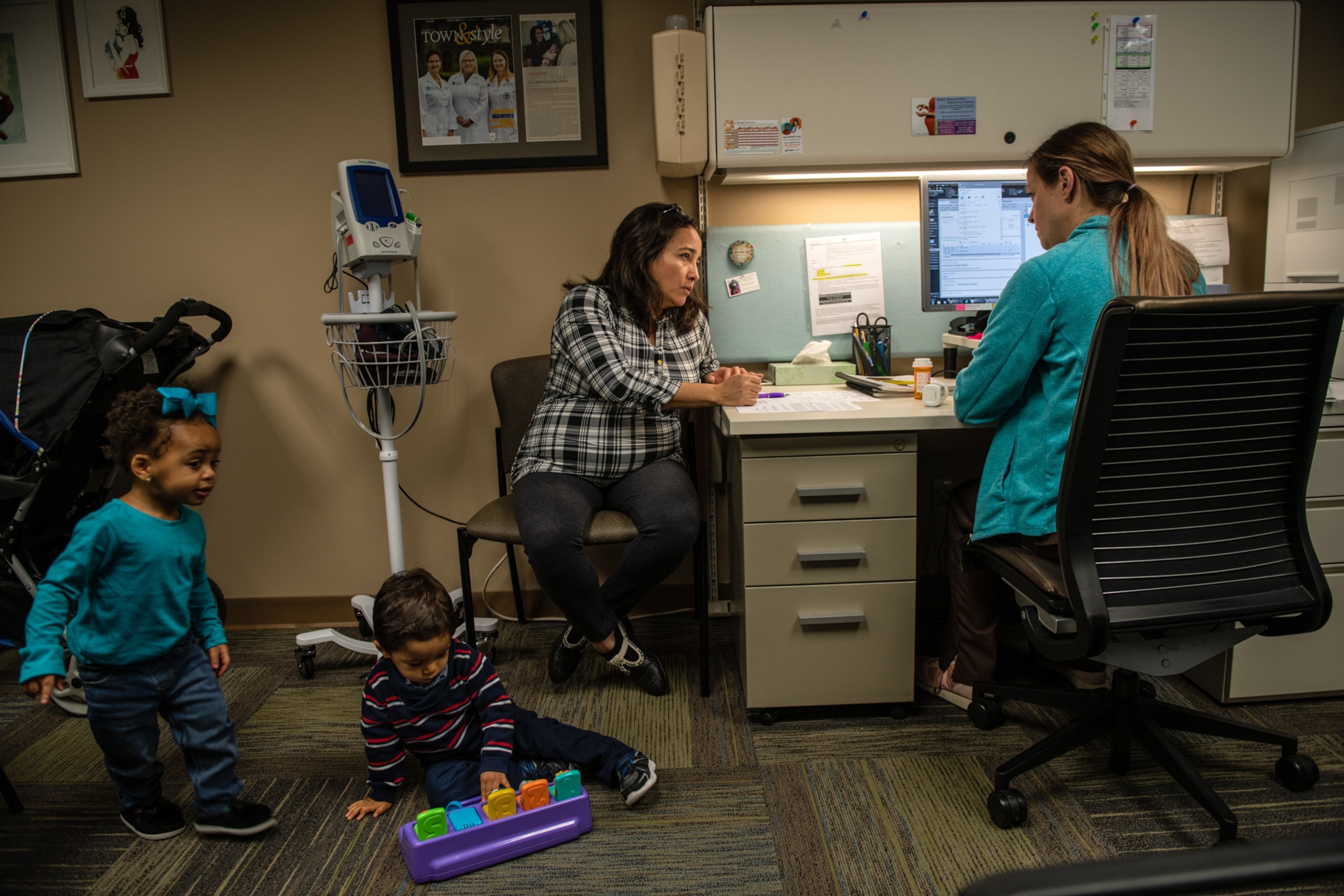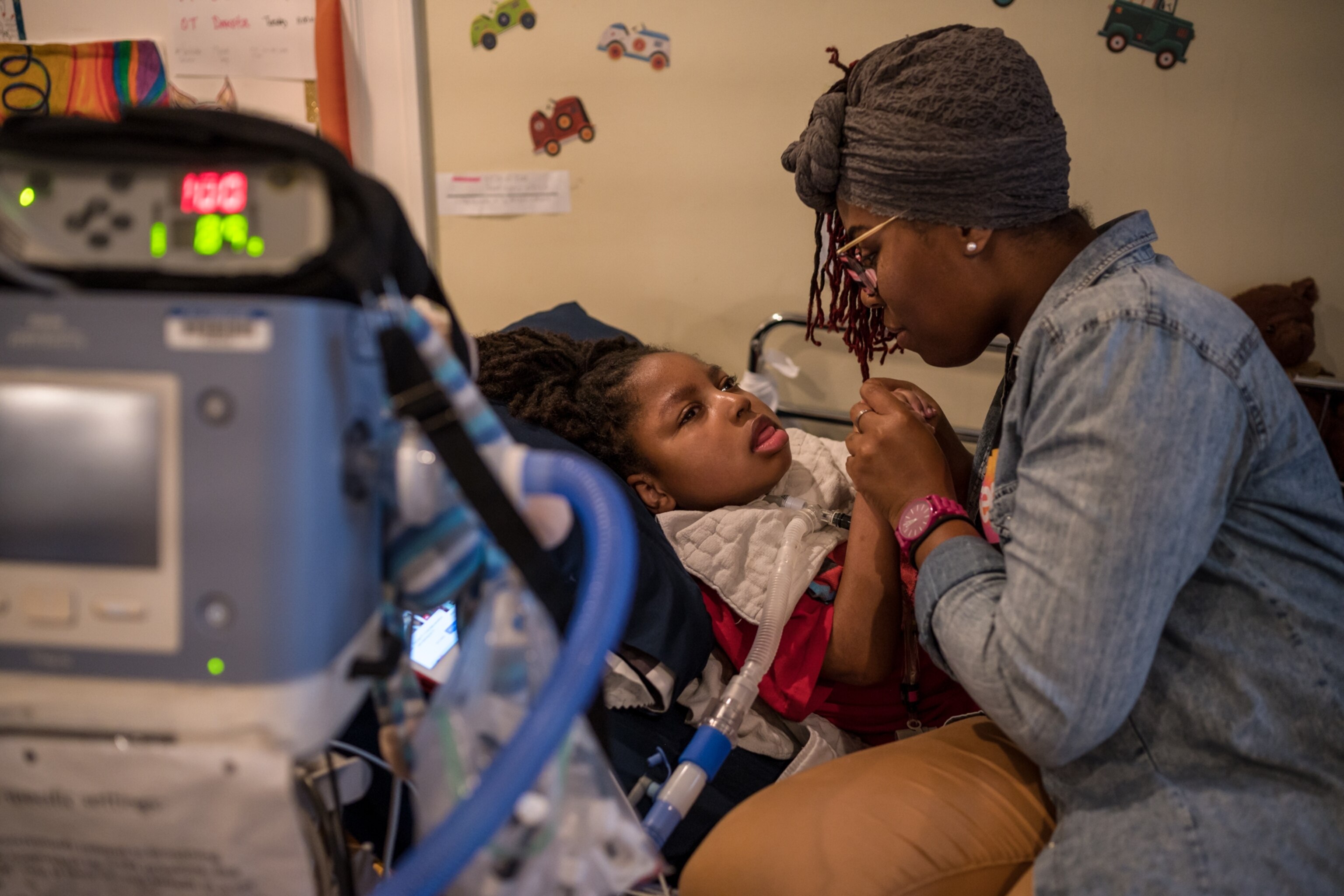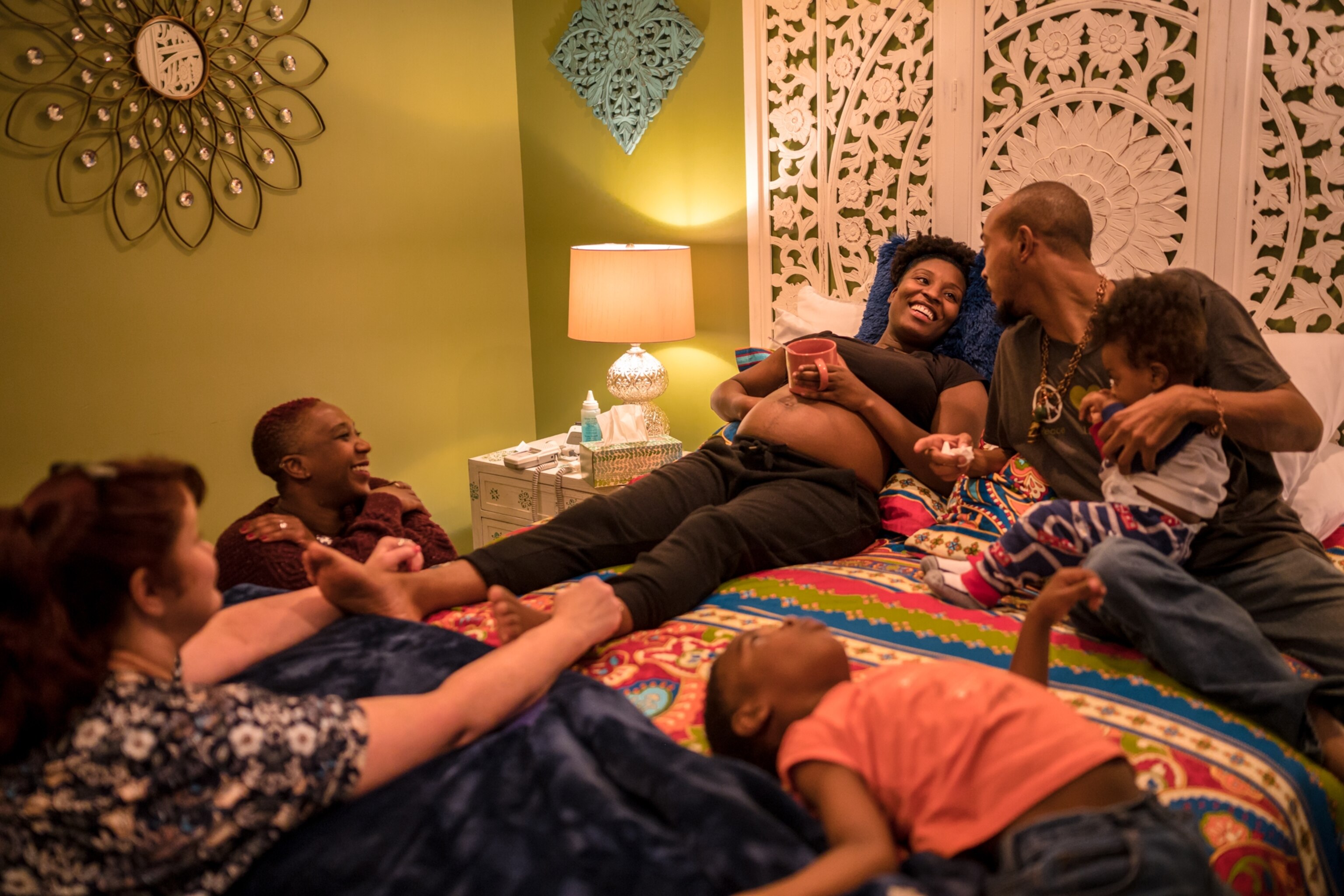
Maternal mortality is shockingly high in the U.S.—especially if you’re Black
Black American women are almost three times more likely to die from pregnancy-related complications than white or Hispanic women—whether they’re wealthy or live in the country’s poorest neighborhoods.
The recent death of Olympic track star Tori Bowie has again set off the alarm for reproductive health activists around the country.
Not only because Bowie, 32, is said to have died due to complications during the early birth of her first child. And not only because Bowie, as has been reported, was one of four Black American athletes at the 2016 Rio Olympics who developed life-threatening pregnancy complications.
Though the past decade has yielded many prominent glimpses into the problem, including testimonies from women like tennis star Serena Williams and singer Beyonce, Black American women are still dying from pregnancy related complications almost three times more than white or Hispanic women. Advocates, activists, and researchers alike contend that Bowie’s death underscores the central, still far-from the universally acknowledged reason it’s happening.

Their view, put simply: Racist policies, a history of violence, and threats to policy-based protections have coalesced to create a public health crisis for Black women that America ignores at its own peril.
Because Bowie’s death occurred during a period of heightened focus on race and inequity in America, the tragedy transmits a powerful message, says Joia Crear Perry, the president and founder of the National Birth Equity Collaborative. She grew up in an upper middle class black household in Louisiana and studied to become an obstetrician herself. Crear Perry admits that at first, that privilege led her and other Black medical students to believe that money and education are protective factors for any patient. Years of practice as an OBGYN, and a stint as a New Orleans city health director, changed her mind.
“Even when we are educated, even when we are normal weight, even when we are trying to become pregnant, we are still more likely to die than our white counterparts,” Crear Perry says. “Because we know there is no biological basis of race, that there's no black kidney or black heart or black gene, then you have to see the fact that Black women are dying at higher rates than their white counterparts is an impact of the outcome of racism. In other words, do we see Black women as fully human? Are Black mamas valuable enough that we are willing to do the work to make sure that they survive and thrive?”
The data around Black women and maternal death is so negative, Black women are far from the only stakeholders alarmed by the issue.
“What we see in maternal mortality is what we see everywhere else,” says. William Callaghan, Chief of the Maternal and Infant Health Branch in the Division of Reproductive Health at the Centers for Disease Control and Prevention. “Black men are twice as likely to die from prostate cancer as white men. There’s a litany of that type of disparity. It’s certainly highlighted in maternal mortality, because you’re talking in most instances about otherwise healthy people with families, and oftentimes orphaned babies. "

Callaghan agrees with reproductive health activists that the ways race and ethnicity are encountered and processed in the medical setting directly impacts the issue.
"There’s all kinds of implicit bias, racial and unconscious bias about somebody who presents with a condition or symptoms that look a lot like something ordinary but isn’t. These judgement calls can occur around race. What they say is judged in a way that is based on their racial background.
“The other layer of fragmentation is the experience of being a Black woman in America, and the intergenerational effects of racism and segregation. It all plays out through biology."
Pamela Merritt can attest. As a co-founder of the St. Louis-based reproductive rights advocacy group Reproaction, her own story yields insight. Her solid middle-class upbringing in St. Louis, Missouri was fueled by parents who helped register neighbors to vote and espoused civil rights, they also worked hard to ensure that their children attended the best schools, wore the best clothes, spoke with clear, precise English.
The “payoff for respectability,” as Merritt put it, came in the form of a six-figure job selling radio advertising in Dallas. While there, two things happened to spark her activism. The first occurred when a high-end retail client submitted a written request that their product not be advertised on “urban radio.” Merritt knew what that meant—they had no interest in Black customers.
The next epiphany occurred when, at age 28, Merritt developed a severe case of uterine fibroids, along with endometriosis. She sought recommendations for an OB/GYN from her white work colleagues.
“There I sat with my perfect English, wearing my expensive suits and my expensive handbag, and I walked into that office and got treated like shit,” Merritt says. “I was told that I needed to have a baby as soon as possible, because ‘most of you have had kids by now.’ I was spoken to like a piece of meat by specialists who never once asked me if I was in pain.”
When Merritt shared her story with her African American female friends, she discovered she wasn’t alone. “So many of them had experiences like mine and worse. And we were all what you would consider upper middle class. That’s when I drew the line from where I stood to where a young, lower-income black woman would probably go through in that same setting. And that’s when I couldn’t just turn my back.”
The past few years have yielded an unprecedented focus on the issue of maternal health—and death—for Black American women. At the forefront of this movement are national organizations like NBEC, the Black Mamas Matter Alliance, and the Black Women’s Health Imperative, each comprised of academicians, medical professionals, community health activists and communication strategists. They have collaborated to develop compelling personal stories, research, and policy strategies to reinforce the message that Black women face serious, quantifiable risk of death or major disability related to pregnancy.
The best proof of what these efforts have yielded was the House of Representatives passage of the Black Maternal Health Momnibus Act of 2020, scheduled for a Senate vote later this year. The legislation includes 12 bills designed to close racial and ethnic disparities in outcomes.
Among other things, it would encourage investment in the social determinants of health that influence maternal health outcomes, like housing, transportation, and nutrition. It would extend eligibility for the federal WIC program, boost funding to community-based groups working in that space, and improve data collection that will strengthen the evidence base needed for concrete remedies.

But there are surely no guarantees that it will pass—or that other legal measures won’t disrupt interventions for Black mothers. For example, last year’s controversial Supreme Court Dobbs v. Jackson Women's Health Organization ruling overturned the historic 1973 Roe v. Wade decision, which guaranteed a constitutional right to abortion. But reproductive health activists were buoyed by a White House executive order on the same day that sought to protect reproductive healthcare services.
“We can’t just talk about our reproductive health and rights from a single-issue lens. Our lives are much more complex than that,” says Monica Simpson, executive director of the Sister Song Women of Color Reproductive Justice Collective based in Atlanta, GA. “The way that the multiple layers of oppression show up in our world is not the same way that privileged communities get to experience these issues. This is why Black women came up with the term ‘reproductive justice,’ which is looking at connection between the very real social justice issues that come into our lives every single day.”
The deadly scenario for Black women is ironic, many birth equity advocates say, considering the role African American women have played in America’s reproductive health history. Throughout the slavery era and into the early 20th century, African American “granny midwives,” were unofficially charged with overseeing the majority of births in many southern and rural settings, for Black and white women alike. Only the advent of modern medical organizations and policies that outlawed non-hospital-based deliveries fueled the demise of home deliveries—and with it the reverence for granny midwives.
But the Black maternal mortality dilemma has high profile support. Led by Washington D.C. Mayor Muriel Bowser, a coalition of women mayors formed in 2018 to direct policies and resources to address the problem. The 2023 National Maternal and Infant Health Summit is scheduled for September 19 in D.C.
“Big city mayors recognize this problem, and we are acting on what we know works to solve it,” Bowser says. “Too often, any maternal death in our communities is outsized, in terms of the impact it has on families. Mayors are being forced to extend our reach to do things we used to rely on the federal government to provide. With this issue, we have to call on the knowledge, and the voices and the energy of our communities to save lives. We can’t wait for the next study or report.”
Still, there’s no way to avoid the impact that the social determinants of health have on the issue. Aza Nedhari is a certified professional midwife, family counselor, and the founding executive director of Mamatoto Village, a perinatal family support organization launched in 2013 in one of Washington D.C.’s poorest neighborhoods.
The community-based organization located in the city’s Ward 8 has grown from a staff of seven community outreach workers to a 5,400 square foot facility with 39 staffers, two clinic rooms, a large kitchen that hosts nutrition classes for women, training space for doulas and several meeting rooms.
Nedhari says Bowie’s death, coming as the country is still recovering from a pandemic, uncovered yet another layer of complexity to the Black maternal health crisis.


“COVID definitely exacerbated the effects of social and structural determinants that are impacting outcomes,” Nedhari says. “It made access to care more difficult. It impacted the quality of care that people were receiving, and their living environments. Safety now is a continual and emerging issue. And then people's mental health was challenged by just existing in a pandemic.”
Because news reports about Bowie’s death often referred to her mental health challenges, Nedhari says that’s another aspect that needs to be amplified. Although eclampsia was cited as the main culprit, Nedhari says Bowie’s mental health could have been a larger factor because it impacted how and if she showed up to receive care.
“I think I was reading in a story that she was 96 pounds at the time of her death. So you have an almost nine months pregnant woman and they’re 96 pounds. That’s a larger conversation, not just about the fact that she died from a hypertensive disorder, but the fact that our mental health system failed her. I think we need to continue to broaden those contributing factors to the death of Black women.”
In the meantime, advocates will continue to organize and mount high profile awareness campaigns like the Sister Song’s Reproductive Justice Bus Tour. And construction is continuing on the Cedar Hill Regional Medical Center project, which will provide a state of the art hospital and trauma center—and a full-fledged maternity ward—in Ward 8. City officials say it will open in 2024.

Nedhari says the facility will certainly benefit pregnant women in the community, but that’s only part of the solution.
“Until we talk about generational trauma and the inheritance of that in our DNA, in our bodies and how trauma changes you and impacts you on a cellular level, until we acknowledge the vicarious trauma of state sanctioned violence against Black people, we won’t solve the problem,” Nedhari says. “When you center the experience of the most marginalized pregnant women, you create solutions that will help all women.”